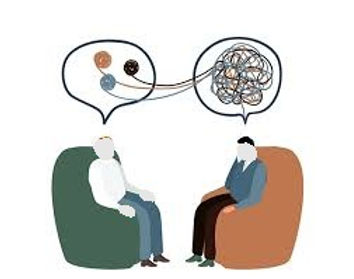Perfectionism:
- Mar 5
- 2 min read
Updated: Jun 15
In the Brisker derech, one of the core approaches to learning is the concept of "shnei dinim"—the understanding that a single halachic category can contain two distinct aspects. This framework helps us differentiate between two types of striving:
Excellence – The pursuit of higher levels of Avodat Hashem, refining one’s mitzvah observance, and striving for constant growth.
Perfectionism – The unhealthy need to be flawless, the fear of making mistakes, and the belief that self-worth is dependent on perfection.
These two approaches look similar on the outside, but their motivations—and their long-term effects—are drastically different.
Din #1: Excellence – The Torah’s Ideal
Judaism is built on the value of constant growth. The Torah encourages striving for higher levels: קְדֹשִׁ֣ים תִּהְי֑וּ (Vayikra 19:2) – You shall be holy.
This is the foundation of Hidur Mitzvah—enhancing mitzvah observance beyond the bare minimum. Striving for excellence means pushing oneself to grow while recognizing that mistakes and challenges are part of the process.
A person committed to excellence: Strives to be better each day. Accepts mistakes as part of the growth process. Is motivated by love for Hashem and a desire to reach their potential.
Din #2: Perfectionism – The Illusion of Control
Perfectionism, by contrast, is not about growth—it is about fear. It is the need to appear flawless, to never make mistakes, and to tie one’s self-worth to achievements.
It turns Avodat Hashem into a pressure-filled test, where the only options are perfection or failure.
The pussik (Koheles 7:20) states: כִּ֣י אָדָ֔ם אֵ֥ין צַדִּ֖יק בָּאָ֑רֶץ אֲשֶׁ֥ר יַעֲשֶׂה־טּ֖וֹב וְלֹ֥א יֶחֱטָֽא׃ "There is no tzaddik who does only good and never sins.".
A perfectionist: Fears of making mistakes. Ties their self-worth to achievements. Is motivated by fear of failure rather than a love for growth.
Perfectionism leads to paralysis, burnout, and disillusionment.



